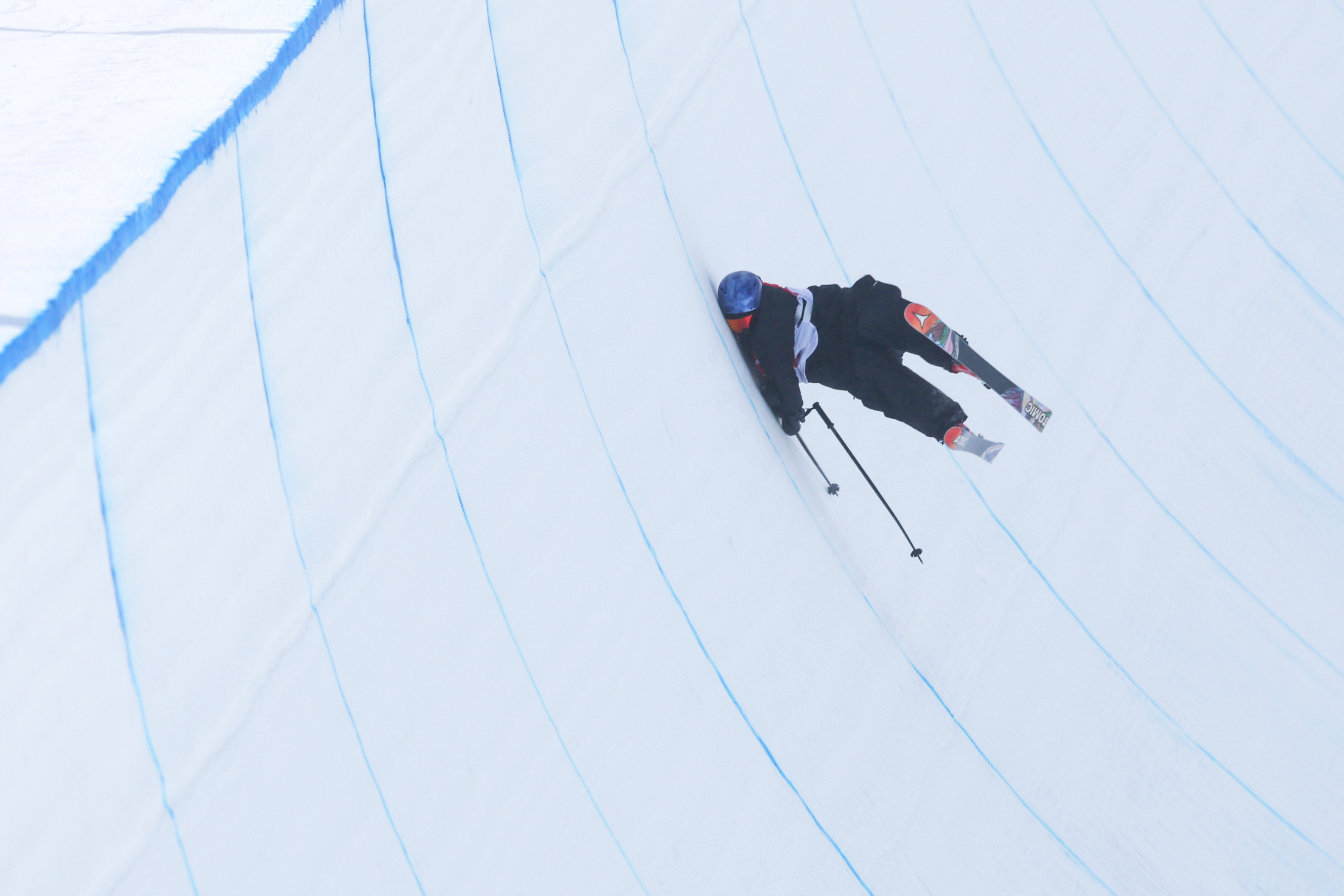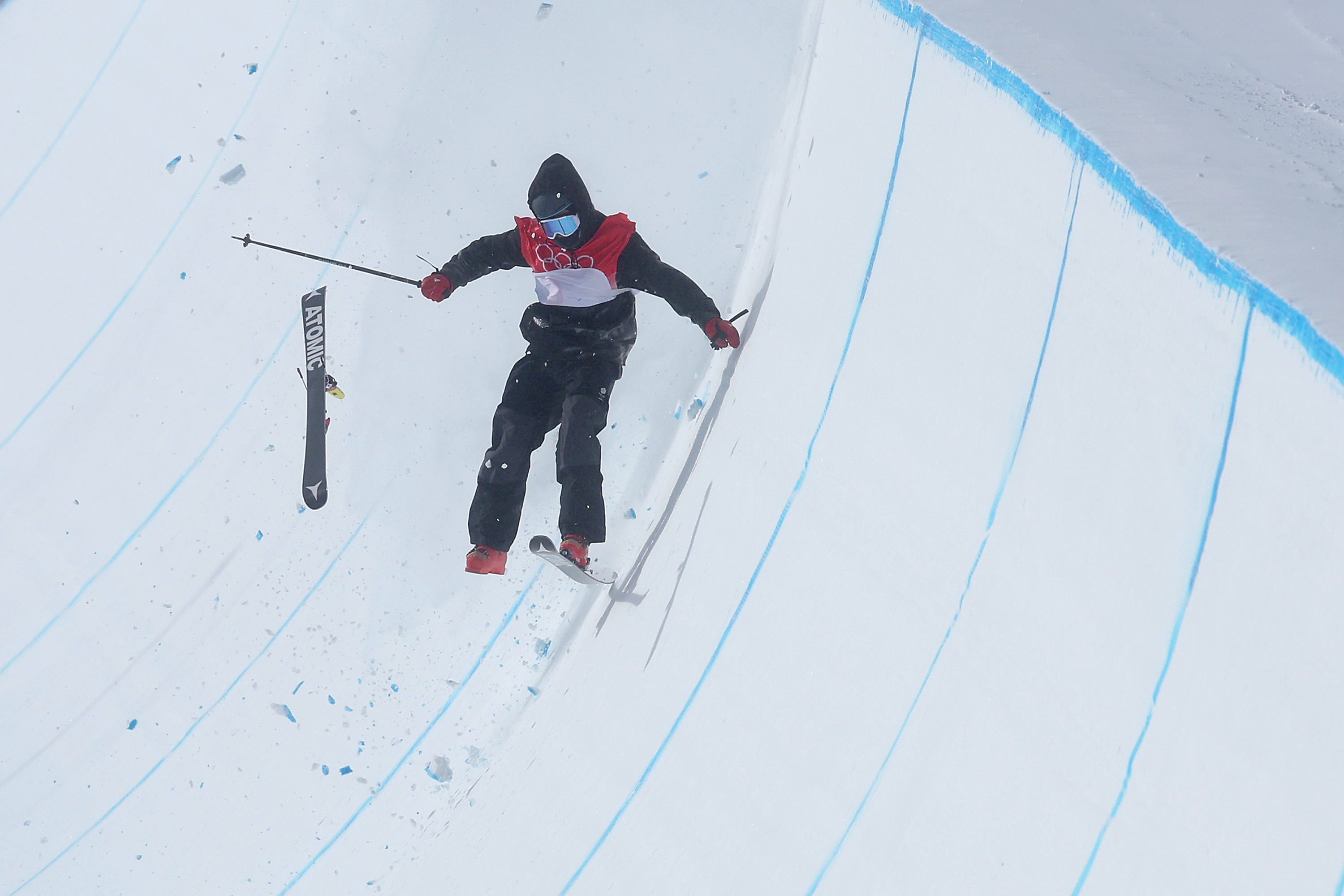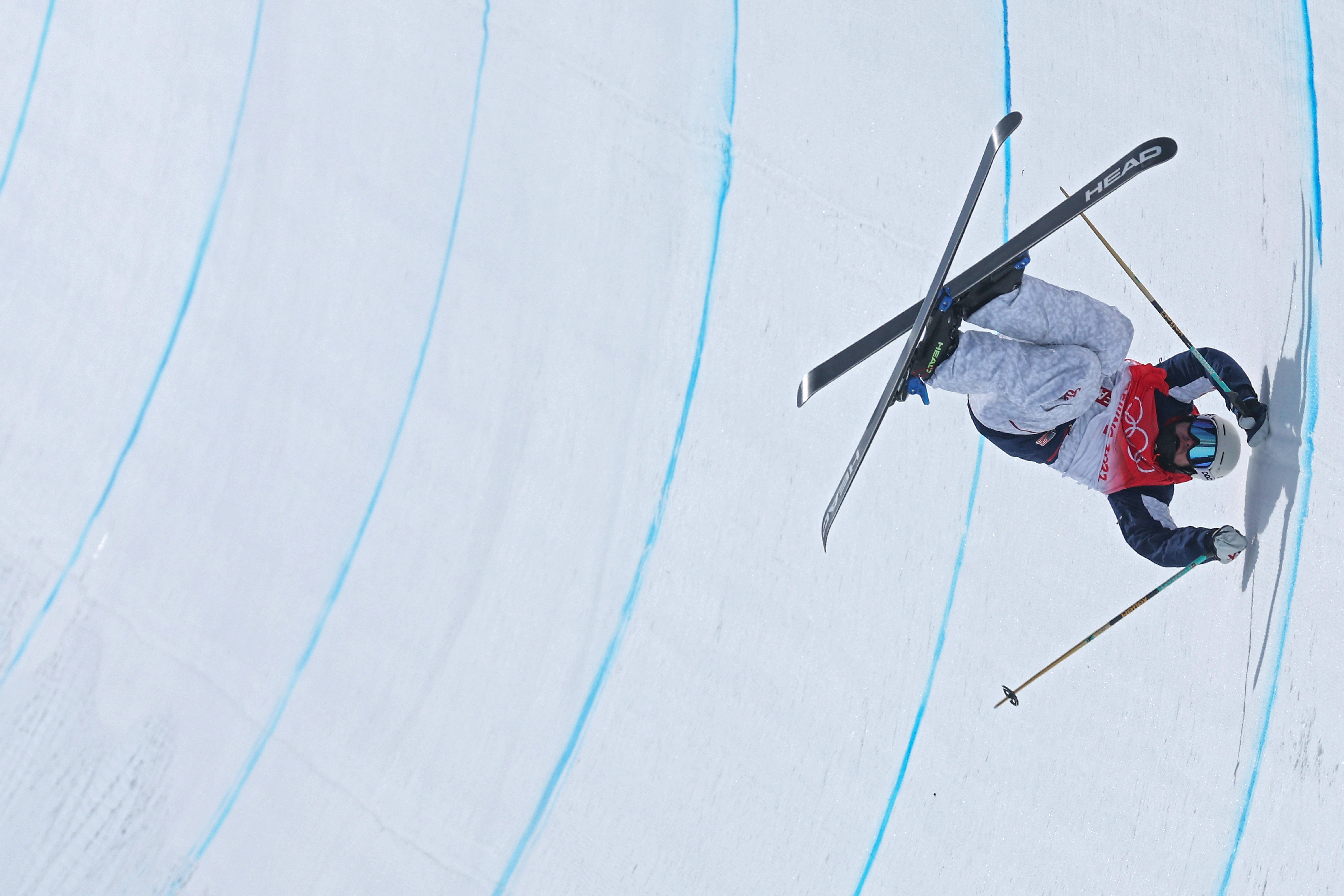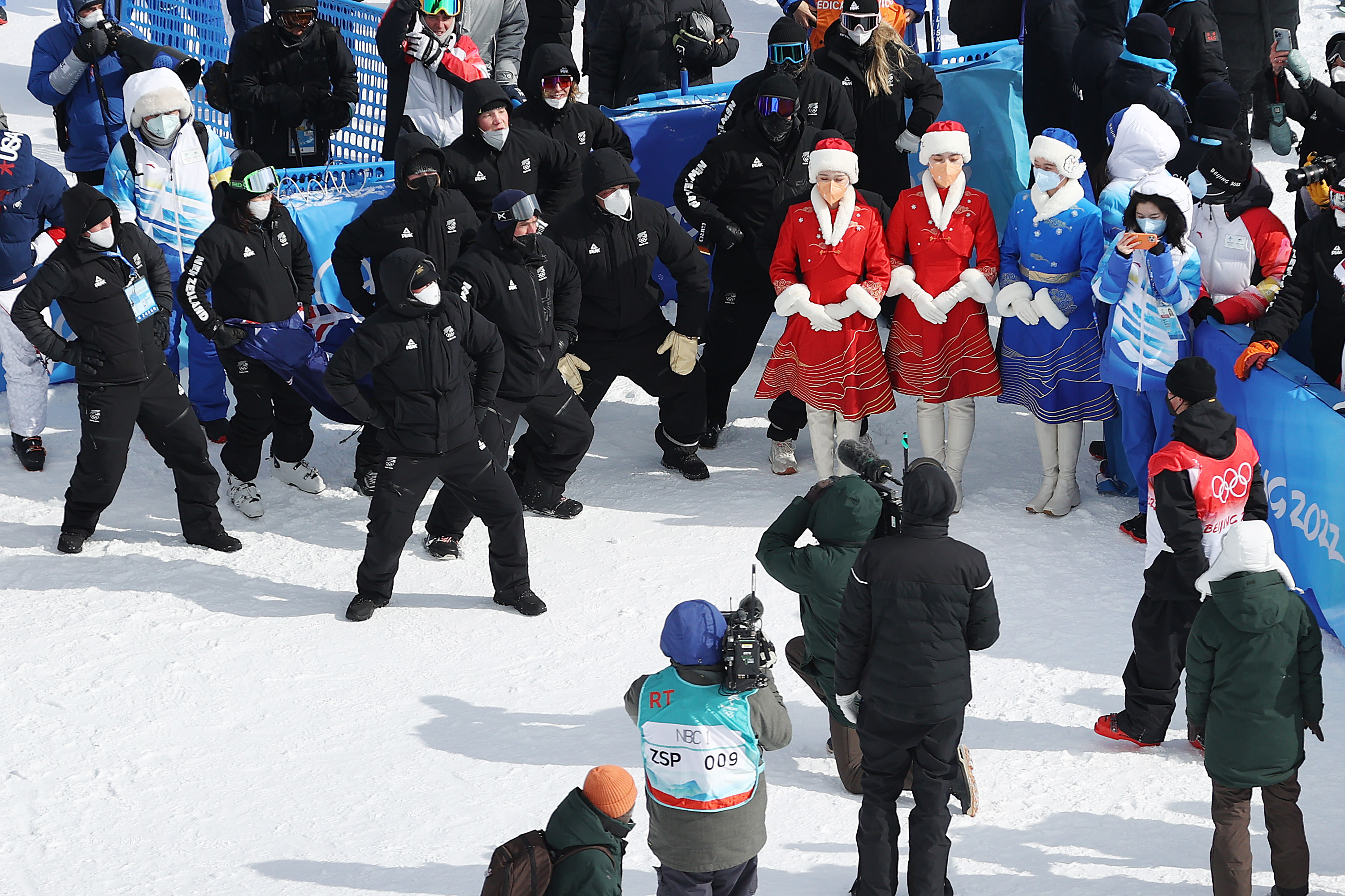The gold medalist, Nico Porteous, had blood caked to his ear.
The silver medalist, David Wise, was tired – as much from skiing as from running halfway up the Olympic halfpipe to check on a teammate after a nasty fall.
One of bronze medalist Alex Ferreira’s biggest takeaways on a day made for hand warmers, hot chocolates and buckets of chips: “I mean, I’m alive.”
AS IT HAPPENED: Aussies charge to 4-0 series lead
READ MORE: Turbo sends ominous message ahead of season
READ MORE: Raiders skipper passes first test since injury
Mother Nature saved the worst for last on the final day of flips and spins at the Olympic action park. With wind chills dipping to minus 32-degrees, and with snow pellets and clouds sporadically infiltrating the halfpipe itself, the day of the men’s halfpipe final was a day for die-hards only.
“Pretty gnarly,” said Gus Kenworthy, the 2014 silver medalist, who finished eighth.
The medalists – Porteous from New Zealand and Wise and Ferreira from the United States – were the same three, ordered differently, who landed on the podium four years ago at the Pyeongchang Games.
Their victories this time were a testament to their experience. Also, a show of sheer guts. It was hard, frankly, to call anyone a runner-up in this one, especially because everyone skied off in one piece. It was a contest, some skiers suggested, that would have been called off had it not been put at the tail-end of the Olympic schedule, with no backup days available.
“My goal was to get the gold,” Ferreira said. “But being on the podium in such tough conditions, I honestly feel like I got the gold.”
All three medal runs came on the skiers’ first trips down the halfpipe, while the adrenaline was still pumping and before the permafrost took hold.
In all, the 12 finalists took three runs each down the frozen expanse. Of their 36 total runs, only 18 were completed without a fall.
Kenworthy took one of the grizzliest hits.
Blown practically out of the halfpipe early in his second run, his back slammed hard into the deck and he went ricocheting down to the bottom of the pipe. He came back 30 minutes later and landed a full run — the last full run of his career.
“Even when the wind wasn’t blowing people onto the deck, it was really killing amplitude,” said Kenworthy, an American who competed for his mother’s home country of Britain. “The guys who are in the top three, they still had incredible runs, but those were not the runs they wanted to do.”
Wise admitted as much.
“I had so much prepared,” he said. “It’s like I cooked a meal for everybody and I didn’t get to share it.”
And so, the skier who had set the standard for this sport over the previous two Olympic cycles added a silver medal to his collection.
Wise famously won his gold in South Korea after ratcheting his bindings so tightly that there was practically no way his skis would release if they got twisted in a fall. In China, he took a tumble on his second run and part of his binding snapped off.
“When it’s cold, and I’m 195 pounds … I’m a little bit harder on my equipment,” Wise said.
Later in the contest, Wise was standing on the bottom when the day’s final competitor, American Aaron Blunck, landed on his head while trying to execute a double cork on his third jump. Wise ran up to the middle of the pipe to check on his buddy.
“I just don’t like when people hit their heads,” Wise said.
Blunck skied off under his own power and team officials said he was evaluated by the medical team and was resting in the Olympic village.
Porteous also hit his head while trying a double-cork 1440 on his final run. Earlier, he had executed two 1620-degree spins — one spinning to his right, the other to his left — that was good for a score of 93 and a lead nobody was going to overcome.
“Bit of a stupid decision to do that,” Porteous said of the final trick, which drew blood on his right ear. “But it’s the Olympics. So you’ve got to leave everything out there.”
Porteous’ victory marked a perfect bookend to these two weeks of flips and twirls at Genting Snow Park. Near the start of the action, in much calmer conditions, snowboarder Zoi Sadowski Synnott won New Zealand’s first-ever Winter Games gold on the slopestyle course.
Thirteen days later, this time on the frosty halfpipe, Porteous added another gold to add to his bronze from four years ago.
Members of the New Zealand team feted him with a haka — a ceremonial dance the country’s All Blacks national rugby team performs before matches.
“Pretty special,” Porteous said.
On a brittle day on the mountain, it was as close to warm-and-fuzzy as he would get.




